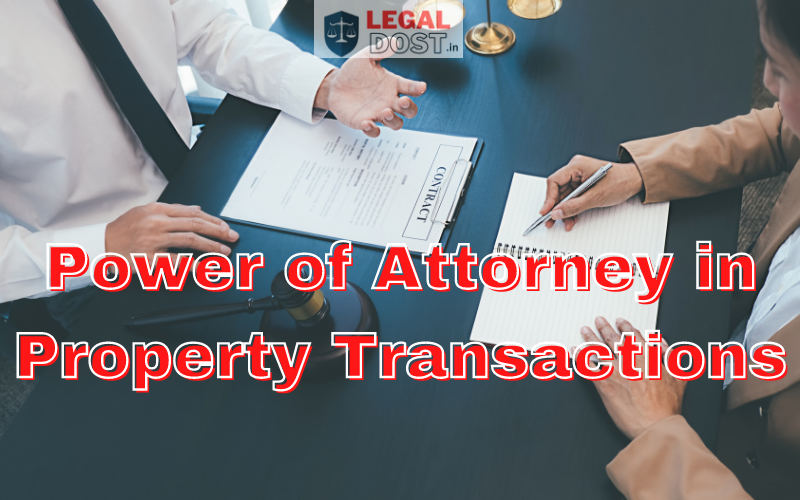As an entrepreneur or business owner in India, it is essential to understand the various legal processes involved in property transactions. One such process is the power of attorney, which plays a crucial role in allowing an individual to represent and act on behalf of another person.
In this blog post, we will delve into the concept of power of attorney in property transactions and how it can benefit you. We will also discuss the types of power of attorney, the process of executing a power of attorney, and the risks involved.
So, without further ado, let’s get started!
What is Power of Attorney in Property Transactions?
Power of attorney is a legal document that allows an individual (the principal) to appoint someone else (the attorney) to represent and act on their behalf. This document grants the attorney the authority to make decisions and take actions on behalf of the principal in relation to their property.
In property transactions, a power of attorney is often used when the principal is unable to attend to their property-related matters due to various reasons, such as illness, absence, or disability. The attorney, in this case, acts as the principal’s representative and takes care of the property-related tasks on their behalf.
Types of Power of Attorney in Property Transactions
There are two types of power of attorney in property transactions:
- General Power of Attorney: This type of power of attorney grants the attorney broad powers to represent and act on behalf of the principal in relation to their property. The attorney can perform tasks such as selling or buying property, collecting rent, and signing documents on behalf of the principal.
- Special Power of Attorney: This type of power of attorney is more specific and grants the attorney limited powers to represent and act on behalf of the principal in relation to a specific task or property. For instance, the attorney may be appointed to sell a specific property or sign documents related to a specific transaction.
It is essential to note that a power of attorney is revocable, which means that the principal can cancel it at any time.
Process of Executing a Power of Attorney in Property Transactions
The process of executing a power of attorney in property transactions involves the following steps:
- Choose the type of power of attorney: As mentioned earlier, there are two types of power of attorney in property transactions. It is essential to choose the one that best suits your needs and the scope of the attorney’s powers.
- Identify the attorney: The next step is to appoint an individual or a group of individuals as the attorney. It is essential to choose someone you trust and is capable of handling your property-related matters.
- Draft the power of attorney: The power of attorney must be drafted by a legal expert, and it should clearly state the powers granted to the attorney and the scope of their representation.
- Sign the power of attorney: Both the principal and the attorney must sign the power of attorney in the presence of two witnesses.
- Register the power of attorney: The power of attorney must be registered at the office of the Sub-Registrar in the jurisdiction where the property is located.
Risks Involved in Power of Attorney in Property Transactions
While power of attorney can be a convenient option for handling property-related matters, it also comes with certain risks. Some of the risks involved in power of attorney in property transactions are:
- Misuse of power: There is always a risk of the attorney misusing their powers and acting against the interests of the principal.
- Fraud: There is a risk of the attorney committing fraud or manipulating the power of attorney for their benefit.
- Disputes: Disputes may arise between the principal and the attorney or among the attorneys themselves, leading to legal battles and costly settlements.
To mitigate these risks, it is crucial to choose an attorney you trust and clearly outline the scope of their powers in the power of attorney document. It is also advisable to appoint a trusted family member or friend as the attorney, rather than a stranger.
In conclusion, power of attorney in property transactions plays a crucial role in allowing an individual to represent and act on behalf of another person in relation to their property. It is essential to understand the types of power of attorney, the process of executing a power of attorney, and the risks involved to ensure a smooth and hassle-free property transaction process.
By following these guidelines, you can leverage the power of attorney to your advantage and handle your property-related matters with ease.
Bibhu Mishra is a prolific writer who has published many books spanning various genres. He is a legal enthusiast and an avid researcher of cutting-edge technology, diving into fascinating realms to bring captivating narratives to life.



